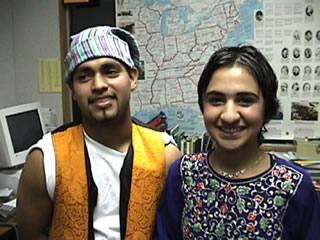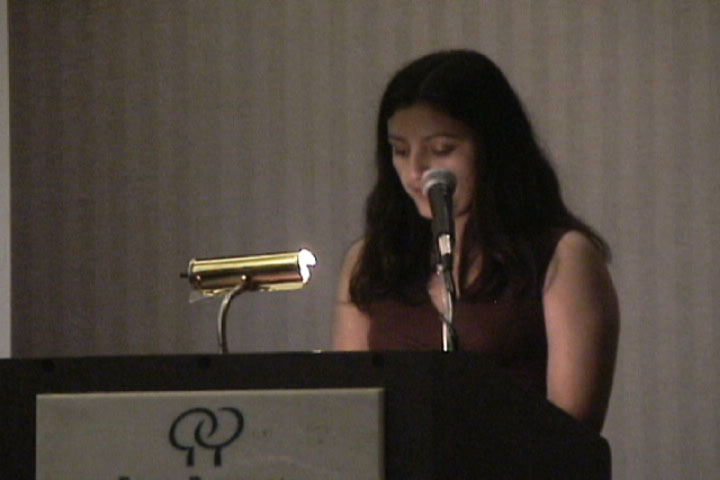Serving
Diverse Learners
The largest group of my students are Spanish-speakers, some of
whom have grown up here, they just never really acquired the skills
because Spanish is spoken in the home. But the first year,
we had a girl from Persia, a boy from China– we had English, Chinese,
Farsi, and Spanish spoken on stage. So we would try to throw in
pieces of their language: one, to honor their language, and two,
to translate a little bit along the way for the audience, who may
not know English. An
interesting thing, it’s very hard to get these kids’ parents
to school on back-to-school night, when I’m speaking to a
room of one person. But for the play, it’s packed.
Grandparents, cousins, siblings. Largely Spanish-speaking,
ELD 2/3. Some transition kids and some kids who grew
up here but don’t have the skills and maybe have that in
their background but who are also at risk. Then, we have
severely handicapped, three autistic kids this year. One
may be Aspergers. Also, gang-affiliation, at-risk.
Giving Students Voice
I had a student, Christina, whose
IEP said, “She won’t talk in class, because she thinks
noone will think that was she says is of any interest.” So
we were a couple of weeks into rehearsing Once in a Lifetime, we’ve
got these actors, and 9/11 happened. We were still in school, but
at one point during the day, I look out and Christina is outside,
sitting against a wall, crying. When the show was over, we
always have the kids write for 4-5 weeks. Monologues, scenes, some
based on what we’ve
just performed, modern adaptations , and some just whatever they
want to write.
Christina wrote about her 9/11 experience,
getting the call that her cousin was in the building. We performed
their writing as staged readings in the Greek Theater outdoors.
People were going back and forth on the campus, seeing us, and
the concentration was okay,
they were respectful, but it wasn’t like when you can feel
it in the air, when kids are really on the edge of their seats. But
when we read Christina’s piece, you could hear a pin drop.
Everyone was focused on her, and her work. I realized afterwards,
I thought back to the IEP that said, “She will not share
her voice because she feels that noone will listen to her.”
Another one of my students is a girl who'd cut all
her English and History classes, but would always come to our
class. She was a talker in the beginning, but everytime I gave
her a leadership role she’d really get on task, and wouldn't
be disruptive. I turned to her fairly early on in rehearsal,
when we were doing the prologue, which I’d typed out as
a sketch, knowing it’d have to be fleshed out later. I
said, “Karen, this needs to be fleshed out, write this
scene.” And she gave it to me by the end of the period.
Then she’d take the kids out and rehearse with them. I
told her what the shape and the blocking would be, and she worked
them and worked them until they got off-book and picked up their
cues, to the point where – sometimes it was 3 kids, sometimes
it was 6—these were kids who might be questionable for
one reason or another, and I had her adapt it so that on any
given night the people that came could make it work.


